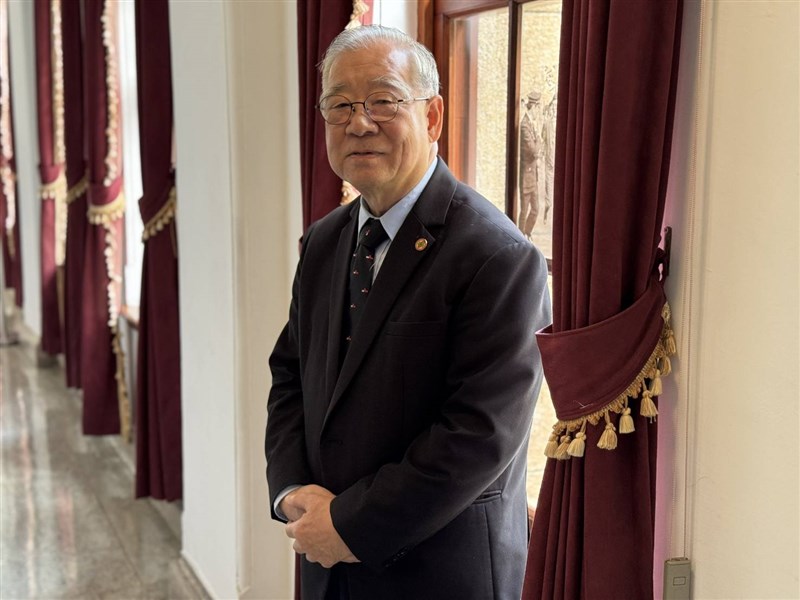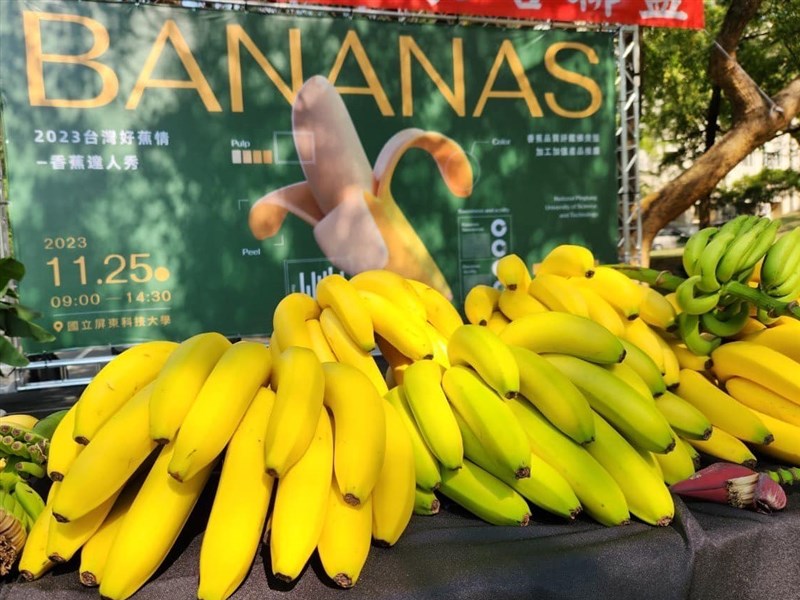He has won five Golden Melody Awards, the equivalent of the Grammys in the Mandarin pop world, and earned songwriting credits on albums released by Andy Lau (劉德華), Vivian Hsu (徐若瑄) and many other superstars.
(Full text of the story is now in CNA English news archive. To view the full story, you will need to be a subscribed member of the CNA archive. To subscribe, please read here.)
More in FEATURE
-
![To some, transitional justice has yet to expunge ghosts of 228 Incident]() To some, transitional justice has yet to expunge ghosts of 228 IncidentWhen Kenneth Wang (王文宏) recounted his father's suffering during the 228 Incident of 1947, he used humor to break up the difficult memories.02/28/2026 09:49 AM
To some, transitional justice has yet to expunge ghosts of 228 IncidentWhen Kenneth Wang (王文宏) recounted his father's suffering during the 228 Incident of 1947, he used humor to break up the difficult memories.02/28/2026 09:49 AM -
![Banana threat: Taiwan decodes secret to tackling banana killer TR4]() Banana threat: Taiwan decodes secret to tackling banana killer TR4When the banana-killing Panama disease was detected in September 2025 in Ecuador, the world's largest banana exporter, it sent chills through the global industry.02/20/2026 12:30 PM
Banana threat: Taiwan decodes secret to tackling banana killer TR4When the banana-killing Panama disease was detected in September 2025 in Ecuador, the world's largest banana exporter, it sent chills through the global industry.02/20/2026 12:30 PM -
![Beyond new clothes: Children in need get private LNY shopping session]() Beyond new clothes: Children in need get private LNY shopping sessionOutside the flagship store of Taiwanese apparel brand NET in downtown Taipei, a queue -- made up of children and their parents -- had formed well before regular opening hours, despite the chilly late-January morning.02/14/2026 04:03 PM
Beyond new clothes: Children in need get private LNY shopping sessionOutside the flagship store of Taiwanese apparel brand NET in downtown Taipei, a queue -- made up of children and their parents -- had formed well before regular opening hours, despite the chilly late-January morning.02/14/2026 04:03 PM
Latest
-
Business
Taiwan to raise natural gas prices by 3% on average in March
02/28/2026 09:14 PM -
Politics
Taichung mayor to visit U.S. in mid-March
02/28/2026 08:52 PM -
Politics
Taiwan closely monitoring situation after U.S., Israel strike Iran: Lai
02/28/2026 08:31 PM -
Politics
Taipei Mayor Chiang Wan-an remembers 228 Incident, seeks to transcend tragedy
02/28/2026 08:23 PM -
Politics
Taiwan raises Israel travel alert amid U.S.-Israel strikes on Iran
02/28/2026 08:01 PM


